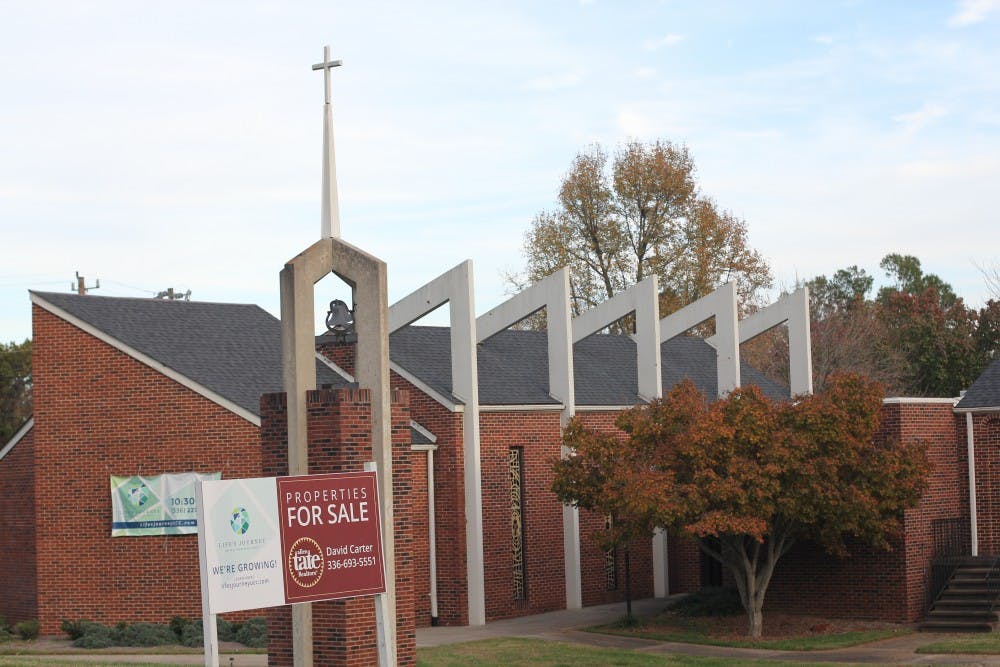BURLINGTON — On the outer wall of 1908 South Mebane St., Burlington, the words “JOHN’S NEW MISSI,” can be read. Below that is the subhead, “UNITED CHURCH OF CHRIST.”
But this is no Christian house of worship. It is Alamance County’s first mosque.
The interior yields little evidence of the building’s repurposing.
Pews line the central gathering space instead of traditional room-wide carpeting. Traces of Christian worship, such as a pulpit, remain present. The very essence of the room still screams Southern and Christian.
Yet on South Mebane Street lies the city’s main place of worship for Muslims.
According to the Burlington Times News, membership in the Muslim community has grown from about 30 families to 150 families in the last few years.
Though the Muslim population is growing, the Caucasian and Hispanic populations remain dominant with nearly 75 percent of Burlington residents falling into one of the two demographics, according to Burlington census.
During the Feb. 4 campus cultural event “Race, Religion and the Changing American Electorate: What the Data Says” at Elon University, Public Religion Research Institute CEO Robert Jones said Christianity is still a leading force nationally. He noted 35 percent of U.S. residents feel Christianity is one of the defining elements of being American.
Shereen Elgamal, assistant professor of Arabic and faculty adviser to the Muslim Student Association, said members of the Burlington Christian community are extremely open and welcoming to a Muslim presence.
“Seven to eight years ago, I was invited for the first time to speak in local area churches and have done so a handful of times since.” Elgamal said. “Without generalizing, the community is open-minded, and I’ve had no negative experiences in my time here.”
A native of Cairo, Egypt, Elgamal has been in the United States more than 25 years, initially arriving in Lexington, Kentucky.
Despite the stereotypically insensitive image Southern states are often branded with, Elgamal has had no struggles practicing her faith in the South. In fact, she said she believes a different Southern stereotype is true — the stereotype of Southern hospitality.
“I’ve always felt like a welcome community member,” Elgamal said.
As an adviser of the Muslim Student Association, one of Elon’s many interfaith community groups, Elgamal helps advise and kindle faith in Muslim students.
Junior Mohammed Ali is not a member of the association but finds the group’s on-campus presence comforting.
“I always get invitations to Muslim student gatherings.” Ali said. “Sometimes I go, sometimes I don’t, but I like that it’s there.”
Ali shares Elgamal’s beliefs that both Elon and Burlington’s communities are accepting and accommodating of non-Christian faiths.
“At first, I thought it would be difficult to be non-Christian, but I was pleasantly surprised at the diversity at Elon in terms of religion,” Ali said. “I’m also happy about the new mosque because I think it will be good for Elon Muslims to connect with local Muslims in the area.”


